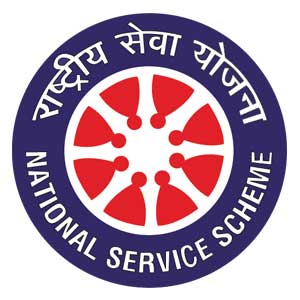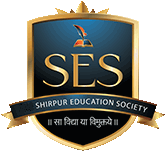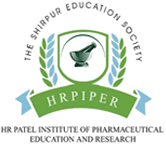National Service Scheme

Mr. K. B. Patil
Program Officer
The National Service Scheme (NSS) is a Central Sector Scheme of Government of India, Ministry of Youth Affairs & Sports. It provides opportunity to the student youth of 11th & 12th Class of schools at +2 Board level and student youth of Technical Institution, Graduate & Post Graduate at colleges and University level of India to take part in various government led community service activities & programmes.The sole aim of the NSS is to provide hands on experience to young students in delivering community service.

NSS Objectives
The main objectives of (NSS) are:
- Understand the community in which they work
- Understand themselves in relation to their community
- Identify the needs and problems of the community and involve them in problem-solving
- Develop among themselves a sense of social and civic responsibility
- Utilize their knowledge in finding practical solutions to individual and community problems
- Develop competence required for group-living and sharing of responsibilities
- Gain skills in mobilizing community participation
- Acquire leadership qualities and democratic attitudes
- Develop capacity to meet emergencies and natural disasters and
- Practice national integration and social harmony
Planned Activities
(a) Environment Enrichment and Conservation:
Whereas there would be a main theme for the special camping program, activities aimed at environment - enrichment would be organized under the sub-theme of" Youth for Better Environment". The activities under this sub-theme would inter-alia, include:
- Plantation of trees, their preservation and upkeep (each NSS unit should plant and protect at least 1000 saplings);
- Creation of NSS parks/gardens.
- Construction & maintenance of village streets, drains, etc. so as to keep the environment clean;
- Construction of sanitary latrines etc.
- Cleaning of village ponds and wells;
- Popularization and construction of Gobar Gas Plants, use of non-conventional energy;
- Environmental sanitation and disposal of garbage & composting;
- Prevention of soil erosion, and work for soil conservation,
- Watershed management and wasteland development
(b) Health, Family Welfare and Nutrition Programs:
- Program of mass immunization;
- Working with people in nutrition program with the help of Home Science and medical college students;
- Provision of safe and clean drinking water;
- Integrated child development program;
- Health education, AIDS Awareness and preliminary health care.
- Population education and family welfare programs;
- Life style education centers and counseling centers.
(c) Programs aimed at creating awareness for improvement of the status of women:
- Programs of educating people and making them aware of women's rights both constitutional and legal;
- Creating consciousness among women that they too contributed to economic and social well-being of the community;
- Creating awareness among women that there is no occupation or vocation which is not open to them provided they acquire the requisite skills; and
- Imparting training to women in sewing, embroidery, knitting and other skills wherever possible.
- Beti Bachao Beti Padhao.
(d) Social Service Programs:
Depending on the local needs and priorities, the following activities/programs may be undertaken:
- Work in hospitals, for example, serving as ward visitors to cheer the patients, help the patients, arranging occupational or hobby activities for long term patients, guidance service for out-door-patients including guiding visitors about hospital's procedures, letter writing and reading for the patients admitted in the hospital; follow up of patients discharged from the hospital by making home visits and places of work, assistance in running dispensaries etc.
- Work with the organizations of child welfare;
- Work in institutions meant for physically and mentally handicapped;
- Organizing blood donation, eye pledge program;
- Work in Cheshire homes, orphanages, homes for the aged etc.;
- Work in welfare organizations of women;
- Prevention of slums through social education and community action;
(e) Production Oriented Program:
- Working with people and explaining and teaching improved agricultural practices;
- Rodent control land pest control practices;
- Weed control;
- Soil-testing, soil health care and soil conservation;
- Assistance in repair of agriculture machinery;
- Work for the promotion and strengthening of cooperative societies in villages;
- Assistance and guidance in poultry farming, animal husbandry, care of animal health etc.;
- Assistance in procuring bank loans
(f) Relief & Rehabilitation work during Natural Calamities:
These programs would enable the students to understand and share the agonies of the people affected in the wake of natural calamities like cyclone, flood, earthquakes, etc. The main emphasis should be on their participation in programs, and working with the people to overcome their handicaps, and assisting the local authorities in relief and rehabilitation work in the wake of natural calamities. The NSS students can be involved in:
- assisting the authorities in distribution of rations, medicine, clothes etc.;
- assisting the health authorities in inoculation and immunization, supply of medicine etc.;
- working with the local people in reconstruction of their huts, cleaning of wells, building roads etc.;
- assisting and working with local authorities in relief and rescue operation;
- collection of clothes and other materials, and sending the same to the affected areas;
(g) Education and Recreations:
Activities in this field could include:
- adult education (short-duration programs);
- pre-school education programs;
- programs of continuing education of school drop outs, remedial coaching of students from weaker sections;
- participatory cultural and recreation programs for the community including the use of mass media for instruction and recreation, programs of community singing, dancing etc.;
- organization of youth clubs, rural land indigenous sports in collaboration with Nehru Yuva Kendras;
- programs including discussions on eradication of social evils like communalism, castism, regionalism, untouchability, drug abuse etc.;
- non-formal education for rural youth and
- legal literacy, consumer awareness.
- Swacch Bharat Mission
- Digital awareness,
- Voter awareness.
The above is only an illustrative list of the type of activities that can be undertaken, Under the program it would be open to each NSS Unit to undertake one of these program or any other activity which may seem desirable to them according to local needs, The NSS Unit will aim at the integrated development of the area selected for its operation which could be a village or a slum.

